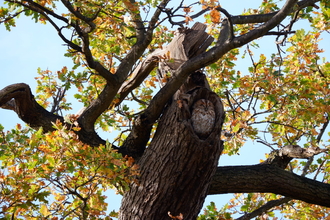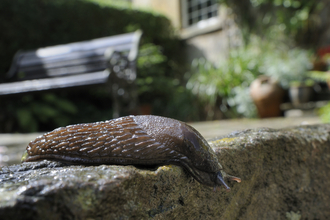A “cute” Christmas card pin up, robins feature heavily on Christmas merchandise this time of year, however, they are highly territorial willing to defend with surprising ferocity and can actually be less than “cute”.
Robins have appeared on Christmas cards since Victorian times and it is thought that Victorian postmen, known at the time as robin red-breasts due to their red waistcoat uniforms, were the inspiration for them appearing on our cards at this time of year.
Robins however, aggressively hold and defend territories all year round, a behaviour rarely seen in birds, with mated pairs holding their territories during the breeding season with males (cocks) and females (hens) continuing to defend smaller territories afterwards and through the autumn and winter too. This defensive behaviour is why robins can be heard singing heartily and with vigour throughout the year, which most other birds don’t do, as birds won’t expend the energy on signing to defend territories if not necessary.






